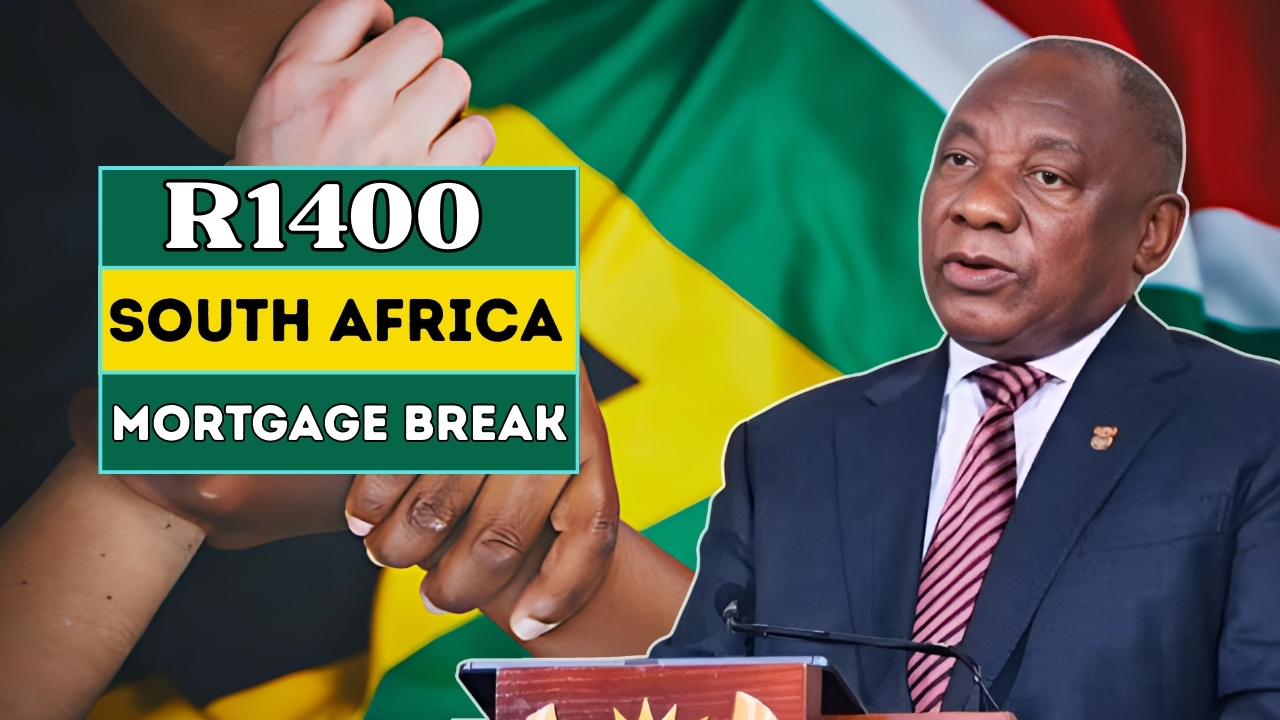Mortgage : Loads of South African home-owners are about to feel much lighter every month, because they could save up to R1 400 on their bond repayments. The great news follows a wave of interest rate cuts announced by the South African Reserve Bank (SARB) plus special help programs for families who are really battling mortgage bills.
Interest Rate Cuts = Quick Cash in Your Pocket
SARB is rolling out a string of interest rate cuts, and smart money analysts are saying the total drop could hit 150 base points by the middle of 2025. Imagine you’ve got a home worth R1.37 million; once the new prime rate edged to 10.25%, your monthly home loan payment would drop by about R1 406. That’s the savings almost by magic.
The bigger your bond, the bigger the break. If your home loan is R2 million, you could save R2 041 monthly; own a R5 million bond and your saving could hit R5 103 every month. That type of cash back in your pocket really counts, especially after years of stubbornly high interest rates that cranked up living costs for families across the country.
Who Can Get the Interest Rate Break?
If you’re a South African homeowner with a home loan that tracks the prime rate, you don’t have to do anything to grab the lower rate—it’s coming to you automatically. So far, the rate has fallen step by step, with four cuts since September 2024. Right now, the prime rate is sitting at 10.75% as of May 2025, and the drops will keep coming. ooba.co lists the prime healing list claims
Why More Rate Cuts Might Happen:
• Inflation has slipped to 2.8%, which is below the South African Reserve Bank (SARB) target.
• Core inflation is at 3.0%, showing that prices for essentials are still stable.
• The economy isn’t zooming, with growth predicted to be only 1.2% for 2025. ooba.co still quoted where they passie information presented.
Government Mortgage Help
Along with the lower rates, the government has rolled out a new loan rescue plan that’s worth checking into. Under this scheme, homeowners facing real money trouble can pocket as much as R1,400 a month to keep their mortgage out of danger. nigeriasolarcapitalpartners says the idea is to keep families in their houses and stop defaults, especially as the cost of living is biting freshmen purpose reconfigured.
Qualifying for Extra House Pay Help
Home-loan help from the government is open to people who hit five key points:
- You need to be low to middle-income. 2. Your bond must be with a South African lender. 3. You can’t pay the full monthly amount because money is tight. 4. You have to fill out an application that proves your bank balance and pay slips.
This careful check stops money from going to people who aren’t at risk of losing their homes and aims to save the families who need it most.
How It Soothes Family Budgets
That extra R1,400 coming in each month can feel like finally finding a possible free weekend. With the bond penny being less, families can then buy a bag of mealie meal, buy the uniform Kwazi needs for the spring camp, and refill grandma’s medicine. The fear of losing a roof becomes a little lighter, and evenings aren’t spent worrying about phone calls from the bank.
The break is also a smart credit cushion. By saving the full bond amount most of the time, households keep their credit score up, making it less likely that a bad report stops them from, say, renting a flat later or getting a data plan for Deng’s schooling. The small break, therefore, is a sturdy wall around much of their financial future.
Secure Your Relief with Action
Homeowners in South Africa who have a variable-rate mortgage will see interest-rate cuts automatically kick in—no extra paperwork needed. If, however, you’re dealing with deep financial trouble, you’ll want to ask your lender for the extra support. Start a conversation with them to fill out the form that might qualify you for the extra government boost of R1,400 each month.
These two efforts—lowering interest rates and offering extra cash—show that South Africa is serious about keeping families in their homes and keeping homeownership strong, securing the economic safety of the nation when times are tough.
